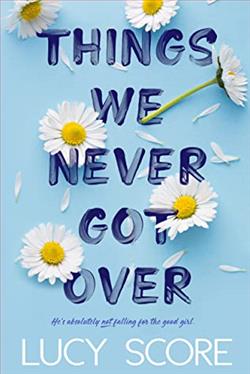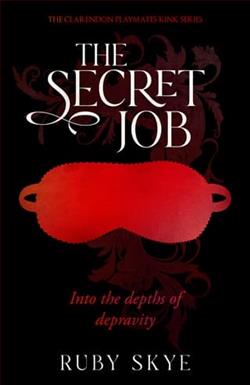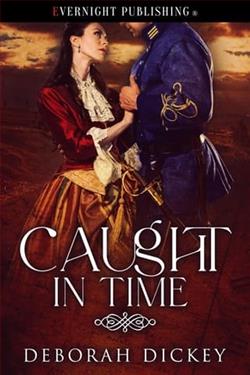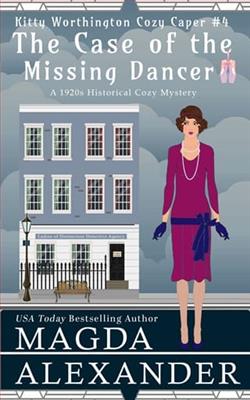Page 73 of The Secrets of Dragonfly Lodge
‘Don’t, you wretch. And no, they’re fascinating,’ she replied. ‘I’m sure I’ll want a change sometime, but for the moment I’m happy. It’s science being useful, you see.’
‘Feeding the world by destroying pests?’
‘Exactly.’
‘I wish I could say the same of my research,’ he said, staring moodily at his grasshoppers, hands in pockets.
‘You know what the professor says. “Even when your research doesn’t appear to lead anywhere…”?’
‘?“All knowledge is useful.” Yes, I know that, but it’s very frustrating. I want the blasted thing finished so I can move on.’
Nancy was used to James’ moodiness now and no longer believed it was connected to her. It was simply built into his character. She saw that he was suited to the meticulous work involved in scientific study and he usually got on with it happily enough. Every now and then, however, something would go wrong and he’d lose sight of what he was doing and fall into a pit of despair. It became Nancy’s job to talk him out of it. He hadn’t shown this uncertainty in his undergraduate years because, she supposed, everything had been laid out for them. They’d merely carried out instructions and absorbed information. The lab work they did now, testing the reliability of any promising result, was slow and repetitive. It could be lonely. Sometimes a line of research led to a dead end, but one’s observations still had to be written up, depressing though this might be. Even negative results were useful to science.
James’ moodiness, though, extended to other parts of his life and Nancy fathomed that his cool arrogance disguised insecurities. For a cheerful, self-confident person such asherself, this was a struggle to endure. Usually he was charming and warm towards her, but if he was unhappy he might give her the sharp edge of his tongue. That wasn’t fair, she thought. Weren’t men supposed to be the strong and reliable ones, like her father? It was a puzzle. Sometimes she soothed him in return, but at other times she’d lose patience and answer him back. Then he’d look hurt, as though she’d struck him, which made her feel guilty.
After she met his parents properly on a couple of visits to their comfortable home in Hampstead, she began to understand him a little better. His father, a professor of Chemistry at Duke’s, another London college, was a dour, bespectacled man of nearly sixty with a spare, stooping figure and thinning grey hair. He would cross-question James about his research, then dismiss his son’s answers, instead coming up with some thesis of his own that Nancy knew was rubbish. The effect on James was undermining and he would stutter and twitch with nerves.
James’ mother’s behaviour was damaging in a different way. She was the complete opposite of her husband, overwhelming her precious only child with gushing affection. James looked embarrassed when she referred to him as her ‘darling boy’ and her refusal to countenance that her son could ever be wrong was as pointless as her husband picking holes in anything James said or did.
Nancy sensed that both parents disapproved of their son’s choice of girlfriend. Mrs West thought her work sounded ‘unfeminine’ and often hinted how important it was that men had proper support from their wives.
It was a relief that her own parents liked James and she often brought him to Sunday lunch at home. He engaged respectfully with her father’s observations about politics and complimented her mother on her cooking. As she’d observed with the Brauns, he could certainly charm people when he wanted.
Early in November, Nancy sent her thesis to be professionally typed, then submitted two copies of it in person to the office in Prince’s College later in the month. Feeling light with relief, she hurried away to meet Anne, who had also recently completed hers.
They went to the same teashop where Edmund had taken Nancy several years before. There were no Christmas decorations this time, no snow outside, either, just a foggy mizzle. As they hung their coats on a stand, Nancy glanced over to see that a pair of elderly ladies were sitting at the table where Edmund had first told her about his unhappy marriage and shown her a photograph of his daughter. Then she forgot about Edmund altogether when they were seated by the window with tea and cakes and Anne told her some exciting news.
‘I’m engaged, Nancy. Gerald asked me.’
‘Oh golly, Anne. Congratulations!’ Gerald, she recalled, was the boy from home whom Anne had once told her about, yet had since hardly mentioned. ‘Honestly, you are a dark horse!’
Anne’s eyes sparkled.
Nancy glanced at Anne’s left hand. ‘Where’s the ring, then?’
‘It’s being altered. The whole thing’s quite recent, which is why I hadn’t told you anything before. Then because we’dknown one another all our lives, he thought there was no point hanging about.’ Anne chattered on happily. ‘He asked me last weekend. The ring was Gerald’s grandmother’s. It’s very pretty, a sapphire between two diamonds, but it’s miles too big. We’re thinking about April for the wedding.’
‘That’s what, only five months away?’
‘I know! There’s a cottage in the grounds of Alton Manor, his family’s house, and we’ll be living there once we’re married. He works for his father in the estate office, so it’s awfully convenient. So I’m moving back to Gloucestershire now my thesis is in. There’s a lot to do.’
Nancy watched her take a large bite of sponge cake and felt a pang of melancholy. She was glad for her friend, but also puzzled. ‘What will you do in Gloucestershire?’ she asked.
‘Do?’
‘Yes, I mean, you’ve just finished a doctorate, Anne.’
‘Oh, it’s work you’re talking about. I don’t know. I want a break after all that study, frankly. Gerald’s awfully keen that I do something that uses my brain, but his family have a position to keep up socially. He thinks it would look odd for me to go out to work. I expect there’ll be something I can do locally. There’s no hurry.’
‘Oh, Anne,’ Nancy exclaimed. ‘You’re not giving up, are you? After all your hard work. You’re good, Anne.’
‘Giving up? No, heavens, I’m proud of my achievements. But come off it, Nancy. It’s hard, isn’t it? How would I combine a life as a scientist with a husband and children? I might as well admit that now and put any thoughts of a career behind me. Gerald’s right, there are other ways I can use my brain.And managing an estate, as he has to, my knowledge can be put to good use. He wants to restore the old stew ponds, for instance, and stock them with fish. I’m sure I can help.’
Nancy looked down at her plate with its half-eaten fruit cake and sighed. One by one, the cohort of women from her undergraduate days were bowing out, dispersing. Peggy was married and expecting her first child, now it would be Anne. The other Anne was teaching Biology in a girls’ school in Sussex. Of the remaining three, one had married and moved to South Africa, another was working as a wildlife officer for the Ministry of Agriculture and nobody quite knew what had happened to the glamorous Diana.
So now there was just herself soldiering on in research. Thank heavens for the other women at Brandingfield, for Dorothy and Eleanor, loyal friends and serious-minded colleagues.
‘How is James?’ Anne enquired, licking cream from her lip. ‘I’m so glad that you got together. Is he “the one”, d’you think? You’re well-matched in my opinion.’















